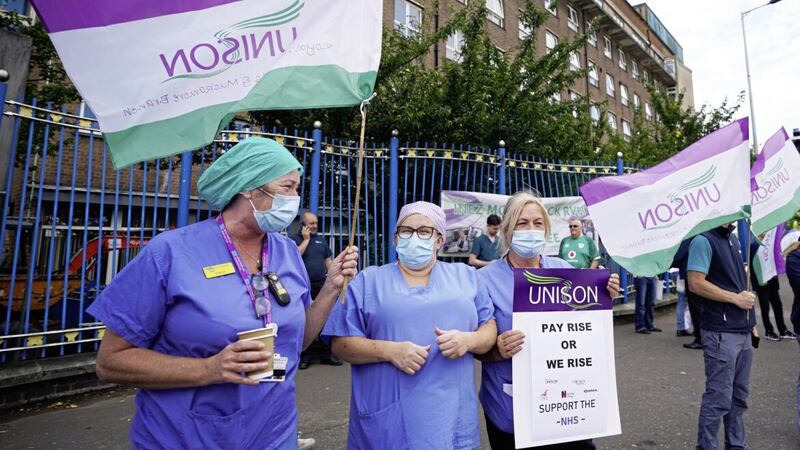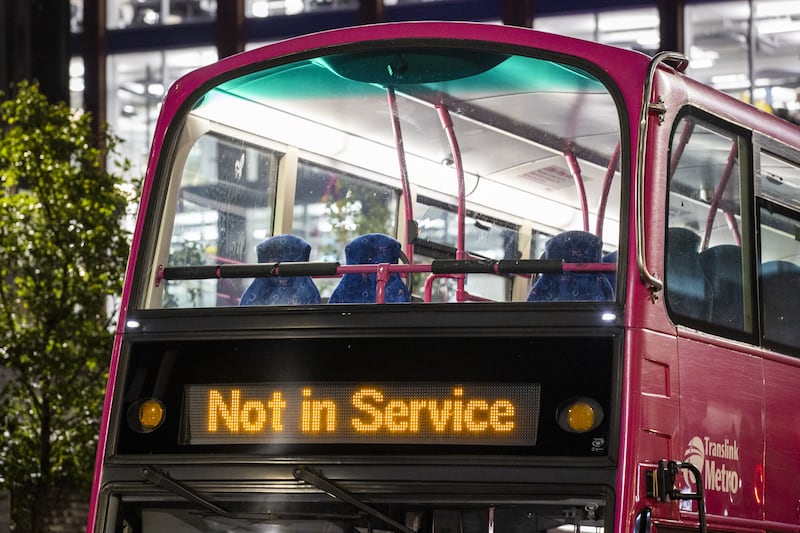THE north's health workers are to receive a wage increase in line with a UK-wide pay body's recommendations but senior civil servants tasked with negotiating other public sector pay claims have been told that any settlements "must be affordable".
Legislation introduced earlier this week gave civil servants the authority to make pay awards for this year. However, they have been advised that any increases any settlements must be within the constraints of the budget set out by Secretary of State Chris Heaton-Harris last month.
The Department of Health yesterday announced that it would be implementing the NHS Pay Review Body's recommendations, which will see a minimum increase of £1400 a year for staff and an additional 4.5 per cent for doctors and dentists, both backdated to April.
The award keeps the north's health workers on the same salary as their counterparts in Britain.
However, the outlook for civil servants and those in the education sector is bleaker with workers potentially facing what effectively amount to pay cuts.
One senior trade union official has told The Irish News that some workers were likely to see the true value of their wages fall by 10 per cent.
Nipsa general secretary Carmel Gates said many workers deemed 'essential' during the pandemic "are now getting slaps rather than claps".
Anne Speed of Unison said the increase for health would not signal the end of potential strike action.
Those overseeing pay awards in the absence of ministers have been told that they should begin "to engage with their staff groups to develop pay proposals for negotiation, agreement and implementation as soon as possible". They have been told to be "mindful of legal entitlements" and established principles, as well as Living Wage obligations.
SDLP MLA Matthew O'Toole said pay awards shouldn't be the responsibility of senior civil servants.
"It is first of all unacceptable and undemocratic that civil servants are being placed in the position of having to sign off pay awards without any political accountability or oversight," he said.
"And in the context of what are likely to be real terms pay cuts for many public sector workers, this lack of democratic accountability is intensified."
People Before Profit MLA Gerry Carroll warned of widespread industrial in response to a "real terms pay cut" for public sector workers.
“Departmental budgets have been slashed and both workers and public services will suffer as a result," he said.
“Responsibility for public sector pay cuts now lies primarily with Westminster but Stormont departments also have a duty these are not implemented.
Ms Gates said Mr Heaton-Harris was "using the budget to sanction Stormont's political parties".
"It's an absolute disgrace that the secretary of state has imposed this budget on public sector workers who are now contemplating a 10 per cent pay cut," she said.








